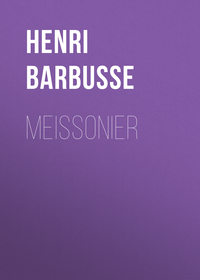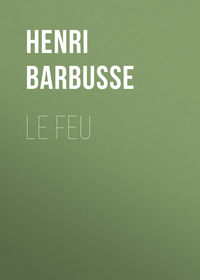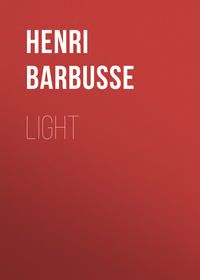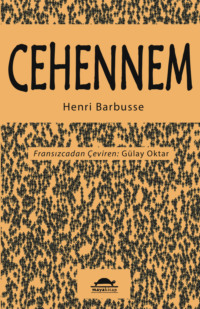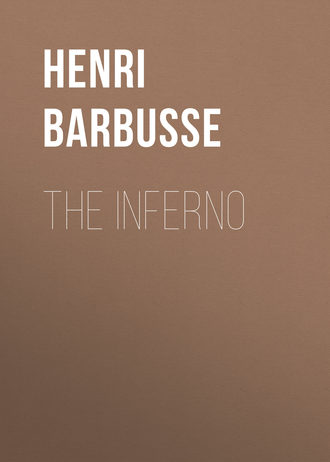 полная версия
полная версияThe Inferno
The dinner bell rang.
This summons to everyday reality and one's usual occupations changed the course of my thoughts for the moment. I got ready to go down to dinner. I put on a gay waistcoat and a dark coat, and I stuck a pearl in my cravat. Then I stood still and listened, hoping to hear a footstep or a voice.
While doing these conventional things, I continued to be obsessed by the great event that had happened—this apparition.
I went downstairs and joined the rest of my fellow-boarders in the brown and gold dining-room. There was a general stir and bustle and the usual empty interest before a meal. A number of people seated themselves with the good manners of polite society. Smiles, the sound of chairs being drawn up to the table, words thrown out, conversations started. Then the concert of plates and dishes began and grew steadily louder.
My neighbours talked to those beside them. I heard their murmur, which accentuated my aloneness. I lifted my eyes. In front of me a shining row of foreheads, eyes, collars, shirtfronts, waists, and busy hands above a table of glistening whiteness. All these things attracted my attention and distracted it at the same time.
I did not know what these people were thinking about. I did not know who they were. They hid themselves from one another. Their shining fronts made a wall against which I dashed in vain.
Bracelets, necklaces, rings. The sparkling of the jewels made me feel far away from them as do the stars. A young girl looked at me with vague blue eyes. What could I do against that kind of sapphire?
They talked, but the noise left each one to himself, and deafened me, as the light blinded me.
Nevertheless, at certain moments these people, because in the course of conversation they thought of things they had at heart, revealed themselves as if they were alone. I recognized the revelation of this truth, and felt myself turning pale on remembering that other revelation.
Some one spoke of money, and the subject became general. The assembly was stirred by an ideal. A dream of grasping and touching shone through their eyes, just as a little adoration had come into the eyes of the servant when she found herself alone.
They recalled military heroes triumphantly, and some men thought, "Me, too!" and worked themselves up into a fever, showing what they were thinking of, in spite of their ridiculously low station and the slavery of their social position. One young girl seemed dazzled, looked overwhelmed. She could not restrain a sigh of ecstasy. She blushed under the effect of an inscrutable thought. I saw the surge of blood mount to her face. I saw her heart beaming.
They discussed the phenomena of occultism and the Beyond. "Who knows?" some one said. Then they discussed death. Two diners, at opposite ends of the table, a man and a woman who had not spoken to each other and seemed not to be acquainted, exchanged a glance that I caught. And seeing that glance leap from their eyes at the same time, under the shock of the idea of death, I understood that these two loved each other.
. . . .The meal was over. The young people went into the parlour. A lawyer was telling some people around him about a murder case that had been decided that day. The nature of the subject was such that he expressed himself very cautiously, as though confiding a secret. A man had injured and then murdered a little girl and had kept singing at the top of his voice to prevent the cries of his little victim from being heard. One by one the people stopped talking and listened with the air of really not listening, while those not so close to the speaker felt like drawing up right next to him. About this image risen in their midst, this paroxysm so frightful to our timid instincts, the silence spread in a circle in their souls like a terrific noise.
Then I heard the laugh of a woman, of an honest woman, a dry crackling laugh, which she thought innocent perhaps, but which caressed her whole being, a burst of laughter, which, made up of formless instinctive cries, was almost fleshy. She stopped and turned, silent again. And the speaker, sure of his effect, continued in a calm voice to hurl upon these people the story of the monster's confession.
A young mother, whose daughter was sitting beside her, half got up, but could not leave. She sat down again and bent forward to conceal her daughter. She was eager and yet ashamed to listen.
Another woman was sitting motionless, with her head leaning forward, but her mouth compressed as if she were defending herself tragically. And beneath the worldly mask of her face, I saw a fanatical martyr's smile impress itself like handwriting.
And the men! I distinctly heard one man, the man who was so calm and simple, catch his breath. Another man, with a characterless business man's face, was making a great effort to talk of this and that to a young girl sitting next to him, while he watched her with a look of which he was ashamed and which made him blink. And everybody condemned the satyr in terms of the greatest abuse.
And so, for a moment, they had not lied. They had almost confessed, perhaps unconsciously, and even without knowing what they had confessed. They had almost been their real selves. Desire had leaped into their eyes, and the reflection passed—and I had seen what happened in the silence, sealed by their lips.
It is this, it is this thought, this kind of living spectre, that I wished to study. I rose, shrugging my shoulders, and hurried out, impelled by eagerness to see the sincerity of men and women unveiled before my eyes, beautiful as a masterpiece in spite of its ugliness. So, back in my room again, I placed myself against the wall as if to embrace it and look down into the Room.
There it was at my feet. Even when empty, it was more alive than the people one meets and associates with, the people who have the vastness of numbers to lose themselves in and be forgotten in, who have voices for lying and faces to hide themselves behind.
CHAPTER III
Night, absolute night. Shadows thick as velvet hung all around.
Everything sank into darkness. I sat down and leaned my elbow on the round table, lighted by the lamp. I meant to work, but as a matter of fact I only listened.
I had looked into the Room a short time before. No one had been there, but no doubt some one was going to come.
Some one was going to come, that evening perhaps, or the next day, or the day after. Some one was bound to come. Then other human beings would follow in succession. I waited, and it seemed to me as if that was all I was made for.
I waited a long time, not daring to go to sleep. Then, very late, when silence had been reigning so long that it paralysed me, I made an effort. I leaned up against the wall once more and looked prayerfully. The Room was black, all things blending into one, full of the night, full of the unknown, of every possible thing. I dropped back into my own room.
. . . .The next day I saw the Room in the simplicity of daylight. I saw the dawn spread over it. Little by little, it began to come out of its ruins and to rise.
It was arranged and furnished on the same plan as my own room. Opposite me was the mantelpiece with the looking-glass above. On the right was the bed, and on the left, on the same side as the window, a sofa, chairs, armchairs, table, wardrobe. The rooms were identical, but the history of mine was finished while the history of the other one had not yet begun.
After an insipid breakfast, I returned to the spot that attracted me, the hole in the partition. Nothing. I climbed down again.
It was close. A faint smell from the kitchen lingered even here. I paused in the infinite vastness of my empty room.
I opened my door a little bit, then all the way. In the hall the door of each room was painted brown, with numbers carved on brass plates. All were closed. I took a few steps, which I alone heard—heard echoing too loudly in that house, huge and immobile.
The passage was very long and narrow. The wall was hung with imitation tapestry of dark green foliage, against which shone the copper of a gas fixture. I leaned over the banister. A servant (the one who waited at the table and was wearing a blue apron now, hardly recognisable with her hair in disorder) came skipping down from the floor above with newspapers under her arm. Madame Lemercier's little girl, with a careful hand on the banister, was coming upstairs, her neck thrust forward like a bird, and I compared her little footsteps to fragments of passing seconds. A lady and a gentleman passed in front of me, breaking off their conversation to keep me from catching what they were saying, as if they refused me the alms of their thoughts.
These trifling events disappeared like scenes of a comedy on which the curtain falls.
I passed the whole afternoon disheartened. I felt as if I were alone against them all, while roaming about inside this house and yet outside of it.
As I passed through the hallway, a door went shut hastily, cutting off the laugh of a woman taken by surprise. A senseless noise oozed from the walls, worse than silence. From under each door a broken ray of light crept out, worse than darkness.
I went downstairs to the parlour, attracted by the sound of conversation.
A group of men were talking, I no longer remember about what. They went out, and I was alone. I heard them talking in the hall. Then their voices died away.
A fashionable lady came in, with a rustle of silk and the smell of flowers and perfume. She took up a lot of room because of her fragrance and elegance. She carried her head held slightly forward and had a beautiful long face set off by an expression of great sweetness. But I could not see her well, because she did not look at me. She seated herself, picked up a book, and turned the pages, and the leaves cast upon her face a reflection of whiteness and thoughtfulness.
I watched her bosom rising and falling, and her motionless face, and the living book that was merged with her. Her complexion was so brilliant that her mouth seemed almost dark. Her beauty saddened me. I looked at this unknown woman with sublime regret. She caressed me by her presence. A woman always caresses a man when she comes near him and they are alone. In spite of all sorts of separation, there is always an awful beginning of happiness between them.
But she went out. That was the end of her. Nothing had happened, and now it was over. All this was too simple, too hard, too true.
A gentle despair that I had never experienced before troubled me. Since the previous day I had changed. Human life, its living truth, I knew it as we all know it. I had been familiar with it all my life. I believed in it with a kind of fear now that it had appeared to me in a divine form.
CHAPTER IV
I went for several days without seeing anything. Those days were frightfully warm. At first the sky was grey and rainy. Now September was flaming to a close. Friday! Why, I had been in that house a week already.
One sultry morning I sat in my room and sank into dreamy musings and thought of a fairy tale.
The edge of a forest. In the undergrowth on the dark emerald carpet, circles of sunlight. Below, a hill rising from the plain, and above the thick yellow and dark-green foliage, a bit of wall and a turret as in a tapestry. A page advanced dressed like a bird. A buzzing. It was the sound of the royal chase in the distance. Unusually pleasant things were going to happen.
. . . .The next afternoon was also hot and sunny. I remembered similar afternoons, years before and the present seemed to be that past, as if the glowing heat had effaced time and had stifled all other days beneath its brooding wings.
The room next to mine was almost dark. They had closed the shutters. Through the double curtains made out of some thin material I saw the window streaked with shining bars, like the grating in front of a fire.
In the torrid silence of the house, in the large slumber it enclosed, bursts of laughter mounted and broke, voices died away, as they had the day before and as they always would.
From out of these remoter sounds emerged the distinct sound of footsteps, coming nearer and nearer. I propped myself up against the wall and looked. The door of the Room opened, as if pushed in by the flood of light that streamed through it, and two tiny shadows appeared, engulfed in the brightness.
They acted as though they were being pursued. They hesitated on the threshold, the doorway making a frame around those little creatures. And then they entered.
The door closed. The Room was now alive. I scrutinised the newcomers. I saw them indistinctly through the dark red and green spots dancing in front of my eyes, which had been dazzled by the flood of light. A little boy and a little girl, twelve or thirteen years old.
They sat down on the sofa, and looked at each other in silence. Their faces were almost alike.
. . . .The boy murmured:
"You see, Hélène, there is no one here."
And a hand pointed to the uncovered bed, and to the empty table and empty clothes-racks—the careful denudation of unoccupied rooms.
Then the same hand began to tremble like a leaf. I heard the beating of my heart. The voices whispered:
"We are alone. They did not see us."
"This is about the first time we've ever been alone together."
"Yet we have always known each other."
A little laugh.
They seemed to need solitude, the first step to a mystery toward which they were travelling together. They had fled from the others. They had created for themselves the forbidden solitude. But you could clearly tell that now that they had found solitude, they did not know what else to look for.
. . . .Then I heard one of them stammer and say sadly, with almost a sob:
"We love each other dearly."
Then a tender phrase rose breathlessly, groping for words, timidly, like a bird just learning to fly:
"I'd like to love you more."
To see them thus bent toward each other, in the warm shadow, which bathed them and veiled the childishness of their features, you would have thought them two lovers meeting.
Two lovers! That was their dream, though they did not yet know what love meant.
One of them had said "the first time." It was the time that they felt they were alone, although these two cousins had been living close together.
No doubt it was the first time that the two had sought to leave friendship and childhood behind them. It was the first time that desire had come to surprise and trouble two hearts, which until now had slept.
. . . .Suddenly they stood up, and the slender ray of sunlight, which passed over them and fell at their feet, revealed their figures, lighted up their faces and hair, so that their presence brightened the room.
Were they going away? No, they sat down again. Everything fell back into shadow, into mystery, into truth.
In beholding them, I felt a confused mingling of my past and the past of the world. Where were they? Everywhere, since they existed. They were on the banks of the Nile, the Ganges, or the Cydnus, on the banks of the eternal river of the ages. They were Daphnis and Chloë, under a myrtle bush, in the Greek sunshine, the shimmer of leaves on their faces, and their faces mirroring each other. Their vague little conversation hummed like the wings of a bee, near the freshness of fountains and the heat that consumed the meadows, while in the distance a chariot went by, laden with sheaves.
The new world opened. The panting truth was there. It confused them. They feared the brusque intrusion of some divinity. They were happy and unhappy. They nestled as close together as they could. They brought to each other as much as they could. But they did not suspect what it was that they were bringing. They were too small, too young. They had not lived long enough. Each was to self a stifling secret.
Like all human beings, like me, like us, they wished for what they did not have. They were beggars. But they asked /themselves/ for charity. They asked for help from their /own/ persons.
The boy, a man already, impoverished already by his feminine companion, turned, drawn towards her, and held out his awkward arms, without daring to look at her.
The girl, a woman already, leaned her face on the back of the sofa, her eyes shining. Her cheeks were plump and rosy, tinted and warmed by her heart. The skin of her neck, taut and satiny, quivered. Half-blown and waiting, a little voluptuous because voluptuousness already emanated from her, she was like a rose inhaling sunlight.
And I—I could not tear my eyes from them.
. . . .After a long silence, he murmured:
"Shall we stop calling each other by our first names?"
"Why?"
He seemed absorbed in thought.
"So as to begin over again," he said at last.
"Shall we, Miss Janvier?" he asked again.
She gave a visible start at the touch of this new manner of address, at the word "Miss," as if it were a kind of embrace.
"Why, Mr. Lecoq," she ventured hesitatingly, "it is as though something had covered us, and we were removing—"
Now, he became bolder.
"Shall we kiss each other on our mouths?"
She was oppressed, and could not quite smile.
"Yes," she said.
They caught hold of each other's arms and shoulders and held out their lips, as if their mouths were birds.
"Jean!" "Hélène!" came softly.
It was the first thing they had found out. To embrace the embracer, is it not the tiniest caress and the least sort of a bond? And yet it is so sternly prohibited.
Again they seemed to me to be without age.
They were like all lovers, while they held hands, their faces joined, trembling and blind, in the shadow of a kiss.
. . . .They broke off, and disengaged themselves from their embrace, whose meaning they had not yet learned.
They talked with their innocent lips. About what? About the past, which was so near and so short.
They were leaving their paradise of childhood and ignorance. They spoke of a house and a garden where they had both lived.
The house absorbed them. It was surrounded by a garden wall, so that from the road all you could see was the tip of the eaves, and you couldn't tell what was going on inside of it.
They prattled:
"The rooms, when we were little and they were so big—"
"It was easier to walk there than anywhere else."
To hear the children talk, you would have thought there was something benevolent and invisible, something like the good God of the past, behind those walls. She hummed an air she had heard there, and said that music was easier to remember than people. They dropped back into the past easily and naturally. They wrapped themselves up in their memories as though they were cold.
"The other day, just before we left, I took a candle and walked alone through the rooms, which scarcely woke up to watch me pass."
In the garden, so prim and well kept, they thought only of the flowers, and little else. They saw the pool, the shady walk, and the cherry tree, which, in winter when the lawn was white, they made believe had too many blossoms—snow blossoms.
The day before they had still been in the garden, like brother and sister. Now life seemed to have grown serious all at once, and they no longer knew how to play. I saw that they wanted to kill the past. When we are old, we let it die; when we are young and strong, we kill it.
She sat up straight.
"I don't want to remember any more," she said.
And he:
"I don't want us to be like each other any more. I don't want us to be brother and sister any more."
Gradually their eyes opened.
"To touch nothing but each other's hands," he muttered, trembling.
"Brother—sister—that's nothing."
It had come—the hour of beautiful, troubled decisions, of forbidden fruits. They had not belonged to each other before. The hour had come when they sought to be all in all to each other.
They were a little self-conscious, a little ashamed of themselves already. A few days before, in the evening, it had given them profound pleasure to disobey their parents and go out of the garden although they had been forbidden to leave it.
"Grandmother came to the top of the steps and called to us to come in."
"But we were gone. We had slipped through the hole in the hedge where a bird always sang. There was no wind, and scarcely any light. Even the trees didn't stir. The dust on the ground was dead. The shadows stole round us so softly that we almost spoke to them. We were frightened to see night coming on. Everything had lost its colour. But the night was clear, and the flowers, the road, even the wheat were silver. And it was then that my mouth came closest to your mouth."
"The night," she said, her soul carried aloft on a wave of beauty, "the night caresses the caresses."
"I took your hand, and I knew that you would live life whole. When I used to say 'Hélène,' I did not know what I was saying. Now, when I shall say 'she,' it will be everything."
Once more their lips joined. Their mouths and their eyes were those of Adam and Eve. I recalled the ancestral lesson from which sacred history and human history flow as from a fountain. They wandered in the penetrating light of paradise without knowledge. They were as if they did not exist. When—through triumphant curiosity, though forbidden by God himself—they learned the secret, the sky was darkened. The certainty of a future of sorrow had fallen upon them. Angels pursued them like vultures. They grovelled on the ground from day to day, but they had created love, they had replaced divine riches by the poverty of belonging to each other.
The two little children had taken their parts in the eternal drama. By talking to each other as they did they had restored to their first names their full significance.
"I should like to love you more. I should like to love you harder. How could I?"
. . . .They said no more, as though there were no more words for them. They were completely absorbed in themselves, and their hands trembled.
Then they rose, and as they did so, the door opened. There stood the old stooping grandmother. She came out of the grey, out of the realm of phantoms, out of the past. She was looking for them as if they had gone astray. She called them in a low voice. She put into her tone a great gentleness, almost sadness, strangely harmonising with the children's presence.
"You are here, children?" she said, with a kind little laugh. "What are you doing here? Come, they are looking for you."
She was old and faded, but she was angelic, with her gown fastened up to her neck. Beside these two, who were preparing for the large life, she was, thenceforth, like a child, inactive, useless.
They rushed into her arms, and pressed their foreheads against her saintly mouth. They seemed to be saying good-by to her forever.
. . . .She went out. And a moment afterwards they followed her, hastily, as they had come, united now by an invisible and sublime bond. On the threshold, they looked at each other once more.
And now that the room was empty like a deserted sanctuary, I thought of their glance, their first glance of love, which I had seen.
No one before me had ever seen a first glance of love. I was beside them, but, far away. I understood and read it without being part of the infatuation myself, without being lost in the sensation. That is why I saw that glance. They did not know when it began, they did not know that it was the first. Afterwards they would forget. The urgent flowering of their hearts would destroy those preludes. We can no more know our first glance of love than our last. I shall remember it when they will have forgotten it.
I do not recall my own first glance of love, my own first gift of love. Yet it happened. Those divine simplicities are erased from my heart. Good God, then what do I retain that is of value? The little boy that I was is dead forever, before my eyes. I survived him, but forgetfulness tormented me, then overcame me, the sad process of living ruined me, and I scarcely know what he knew. I remember things at random only, but the most beautiful, the sweetest memories are gone.
Well, this tender canticle that I overheard, full of infinity and overflowing with fresh laughter, this precious song, I take and hold and cherish. It pulses in my heart. I have stolen, but I have preserved truth.


